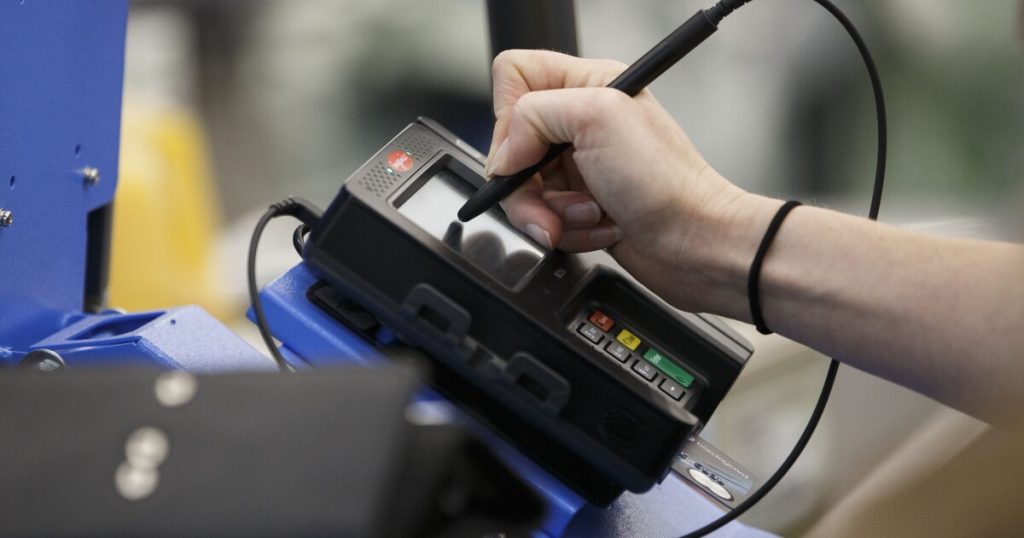A
Lawyers representing both banking groups and the Illinois attorney general’s office debated the applicability of the Supreme Court’s
The
Among the key disputes during the hearing, held in the U.S. District Court for the Northern District of Illinois, was at what point a state banking law preempts a national banking law, and if the swipe fee law in question rises to that level.
The Cantero case, which was decided in May, established that preemption occurs only when a law discriminates against nationally-chartered banks or “significantly interferes” with their ability to exercise their powers.
The Illinois attorney general argued that the Cantero decision — coupled with the case law it cites — creates a standard that a law must create “extreme” interference with a nationally chartered bank’s ability to do business in order to be deemed preemptive. During the hearing Wednesday, the state insisted that the swipe fee law in question does not rise to that level.
“In those four Supreme Court cases, they either essentially eliminate national bank exercise of federal power … or diminish it to such an extent that it threatens the national bank’s economics,” Darren Kinkead, lead lawyer for the attorney general’s office said, adding such a summation amounted to a “common sense” interpretation of the case law.
Jones Day lawyer Charlotte Taylor, the lead attorney for the plaintiffs, argued that the word “extreme” never appears in the Cantero decision and the state’s conclusion that it should be the standard is “not supported by law.”
Yet, if extreme interference were the threshold, Taylor continued, the swipe fee law would rise to that level of interference for some banks.
“The issuers are providing the cardholders with service, they’re going out and marketing their cards to cardholders, they’re taking on the liability in the case of credit cards, and the state of Illinois is just saying, ‘Well, for, you know, 10 cents on every dollar, you’re not going to get paid for that,'” Taylor said. “Which I think is an extreme interference.”
Taylor argued that while the courts determine the legality of prohibition, the law, which is set to go into effect on July 1, 2025, should be placed on hold. She said banks would incur significant costs to hire staff to manually insure interchange fees are not charged on taxes and tips, and noted that the associated civil penalty of $1,000 per errant transaction could be crippling, especially for small card issuers.
Kinkead countered that an injunction was not appropriate, because unless the law is struck down, banks will still be on the hook to comply in nine months.
Justice Virginia M. Kendall, the judge overseeing the case, did not issue a ruling on the injunction request Wednesday afternoon. She noted that she would have to comb through the extensive and nuanced arguments put forth by both sides before reaching a decision.
The state has framed the swipe fee law as a protection for retailers and consumers, arguing that states are entitled to act as “laboratories of Democracy” by experimenting with their own regulatory regimes that differ from those at the federal level.
Observers have also noted that the tax and tip exemption was inserted into the budget as a

